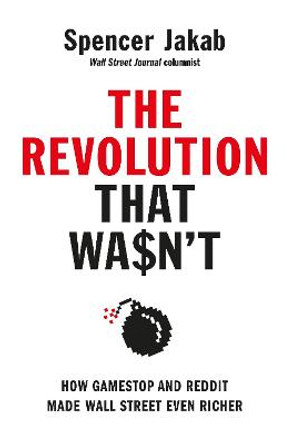Description
This surprising study of online political mobilization shows that money and organizational sophistication influence politics online as much as off, and casts doubt on the democratizing power of digital activism.
The internet has been hailed as a leveling force that is reshaping activism. From the Arab Spring and Occupy Wall Street to Black Lives Matter and #MeToo, digital activism seemed cheap, fast, and open to all. Now this celebratory narrative finds itself competing with an increasingly sinister story as platforms like Facebook and Twitter-once the darlings of digital democracy-are on the defensive for their role in promoting fake news. While hashtag activism captures headlines, conservative digital activism is proving more effective on the ground.
In this sharp-eyed and counterintuitive study, Jen Schradie shows how the web has become another weapon in the arsenal of the powerful. She zeroes in on workers' rights advocacy in North Carolina and finds a case study with broad implications. North Carolina's hard-right turn in the early 2010s should have alerted political analysts to the web's antidemocratic potential: amid booming online organizing, one of the country's most closely contested states elected the most conservative government in North Carolina's history.
The Revolution That Wasn't identifies the reasons behind this previously undiagnosed digital-activism gap. Large hierarchical political organizations with professional staff can amplify their digital impact, while horizontally organized volunteer groups tend to be less effective at translating online goodwill into meaningful action. Not only does technology fail to level the playing field, it tilts it further, so that only the most sophisticated and well-funded players can compete.
About the Author
Jen Schradie is a sociologist and Assistant Professor at the Observatoire sociologique du changement at Sciences Po in Paris. Her work has been featured on CNN and the BBC and in the New Yorker, Washington Post, Time, Daily Beast, and Buzzfeed, among other media. She was awarded the Public Sociology Alumni Prize at the University of California, Berkeley, and has directed six documentary films.
Reviews
Schradie demonstrates in great detail [how] Facebook and Google work better for top-down, well-funded, disciplined, directed movements. Those adjectives tend to describe conservative groups more than liberal or leftist groups in the United States. -- Siva Vaidhyanathan * The Atlantic *
Schradie explains that, while Black Lives Matter and #MeToo capture headlines, it's traditionally powerful conservative groups who have used digital tools to create tangible change. Hers may not be the internet culture take you want...but it's likely the one you need. * Wired *
The Revolution That Wasn't reveals the textured reality of contemporary activism, challenging widespread assumptions about technology's role in social movements. Beautiful storytelling and grounded insights make this book a delightful and important read for anyone who is concerned about politics today. -- danah boyd, author of It's Complicated: The Social Lives of Networked Teens
Trump has no overt presence in The Revolution That Wasn't: How Digital Activism Favors Conservatives. But the compulsive tweeter comes constantly to mind as French sociologist Jen Schradie persuasively argues her counterintuitive case: digital organizing-once complacently thought by progressives to advantage their grassroots uprisings-has turned out to be another 'weapon in the arsenal of the powerful.' -- Brian Bethune * Maclean's *
Schradie shifts the political conversation away from moral questions and toward questions of power, asking...how the tools of the web work in the very ordinary and unexceptional realm of electoral politics. Social media becomes a lens through which we can understand power, not an instance of power itself...We wish it was bots, that we could locate the problem inside nefarious digital practices emerging from Russia and other phantasms. Instead, as Schradie makes clear, the problem is within our borders, produced by legacies of racial and class-based terror that are as virulent-or more-in the digital age. -- Emily Drabinski * Los Angeles Review of Books *
This well-researched and provocative text is likely to make uncomfortable reading for anyone who believes that the internet has gifted us a political 'digital utopia.' -- John Gilbey * Times Higher Education *
The powers of persuasion, unregulated, have changed our political landscape profoundly...The right is simply better at this than the left, and Schradie's study explores why that is...A fascinating book that adds new insights to our understanding of the information landscape we live in today. -- Barbara Fister * Inside Higher Ed *
Offers detailed analyses of the ways in which digital inequality manifests...Schradie's superb study-easily one of the most important yet on social media's impact on democracy-makes for grim but insightful reading. -- Hans Rollmann * PopMatters *
Articulates society's creeping apprehensions about the digital world. It is not only in surveillance and fake news that digital platforms marketed for our pleasure are harming us. Even in digital activism-the use of digital technology for social change-those who support the status quo have the upper hand...Schradie...quashes the idea that digital tools aid the powerless more than the powerful. -- Mary Joyce * Stanford Social Innovation Review *
[An] excellent and important book...Schradie has written an essential contribution to current conversations around not only the use of technology for political purposes, but also about the politics of technology...This book puts forth a nuanced argument about the need for activists to really think critically about whether they're using digital tools, or whether the digital tools are using them. -- Zachary Loeb * b2o *
Shows that it was conservatives who most effectively seized the digital tools at their fingertips. Like a peat fire burning undetected for a long time, right-wing individuals and groups were able to develop and formulate a clear ideology surrounding such concepts as Freedom and Truth while honing their digital media skills. This happened outside the gaze of popular pundits and academics alike...[This] also partly explains the largely unforeseen (by the same pundits) results of the 2016 U.S. elections. -- Rik Smit * American Journal of Sociology *
Schradie suggests [that] the image the words 'digital activist' should conjure is not of a left-wing student or labor activist but instead a well-heeled think-tank denizen or technologically adept Tea Party member. * Kirkus Reviews *
An extraordinary read bringing together knowledge about social activism and the digital divide...A full portrait of digital activism and its variable impact on emboldening grassroots organizing and maintaining the interests of the powerful. * Choice *
Don't believe the mythology of what works in digital activism, or the hyped advice that all voices can simply count. This book lays out the real deal. Perfect for change agents aiming to turn their wild ideas into new realities. -- Nilofer Merchant, author of The Power of Onlyness
The Revolution That Wasn't synthesizes a wealth of accumulated knowledge to launch a new phase of scholarly endeavor. Blending ethnographic methods with quantitative assessments, Jen Schradie's work shows that the claims of both digital optimists and pessimists miss the mark. She reveals that successful digital activism is linked to more traditional resources that give well-endowed groups a natural advantage, but one that can be acquired by their progressive opponents. A pleasure to read, and packed with vibrant interactions with activists of both types, Schradie's book will take the study of digital activism to a new level. -- Sidney Tarrow, author of Power in Movement
Simply put, The Revolution That Wasn't overturns our reigning assumptions about digital activism. Schradie demonstrates how resources, organizations, and ideology shape the potentials for and outcomes of digital activism, and reveals the dynamics behind the conservative digital organizing resurgence in the U.S. since 2010. This highly readable and richly detailed book will become the first stop for those seeking to understand why the internet failed to live up to the ideals of democratic dreamers. -- Daniel Kreiss, University of North Carolina
Schradie carefully outlines how a confluence of factors help conservatives-not liberals-use digital technologies to seize state government and effect political change...Clearly illustrates that the use of technology is stratified along class lines, and finds that working-class, predominately liberal groups are at a disadvantage in the digital activism game...Timely, important, and challenges how we think about movements on the left and right. -- Deana Rohlinger * Mobilization *
Awards
Winner of Charles Tilly Award 2020 (United States) and ICA Outstanding Book Award 2020 (United States).
Book Information
ISBN 9780674972339
Author Jen Schradie
Format Hardback
Page Count 416
Imprint Harvard University Press
Publisher Harvard University Press









